Presenting the Report, Minister of Education and Training Nguyen Kim Son emphasized that these three draft laws have a close relationship and are being developed synchronously to promptly institutionalize the Party's major policies and orientations, especially Resolution No. 71-NQ/TW of the Politburo on breakthroughs in education and training development, along with key resolutions on science and technology, innovation, digital transformation, international cooperation, private economic development, and innovation in law-making and enforcement.
This is a necessary step to remove "bottlenecks" in the field of education and training; enhance the autonomy of educational institutions while ensuring quality, effectiveness and efficiency, while meeting new requirements on decentralization, administrative procedure reform, streamlining the apparatus and implementing a two-level local government model.
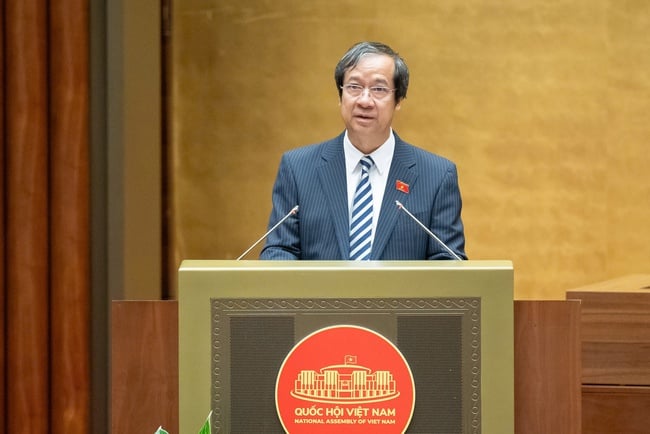
Minister of Education and Training Nguyen Kim Son presented the Proposal
Regarding the major amendments and supplements, Minister of Education and Training Nguyen Kim Son said that the draft Law amending and supplementing a number of articles of the Law on Education has the basic content of the draft Law focusing on 4 groups:
Firstly , institutionalize some important contents of the Party, especially Resolution 71 such as stipulating that lower secondary education is compulsory education, universalizing preschool education for children from 3 to 5 years old; supplementing principled regulations on State policies in science and technology and digital transformation, especially the controlled application of artificial intelligence, building a national database on education and training; stipulating a unified set of textbooks nationwide; not organizing school councils in public educational institutions; perfecting regulations on scholarships for learners, supplementing the national scholarship fund; innovating the model of gifted schools, supplementing the type of boarding schools; co-ownership of teachers between public service units and higher education institutions; specifying the budget expenditure structure for investment and higher education, and principled regulations on preferential land tax policies for educational institutions.
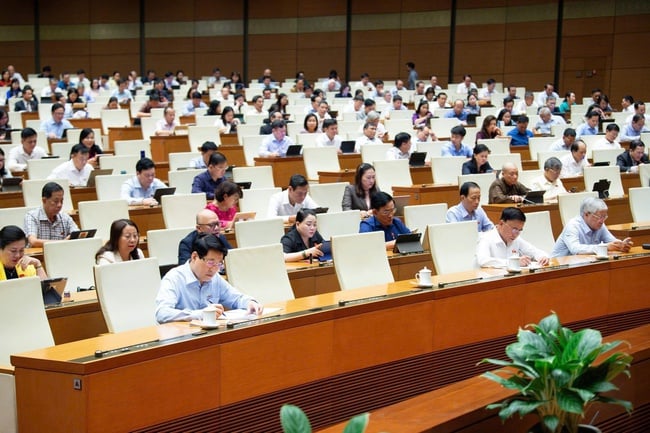
View of the meeting
Second, remove practical obstacles, ensure state management and the consistency of the legal system: Add vocational secondary education at the same level as high school to the national education system; clarify the direction of post-secondary education streaming in accordance with the capacity, strengths and talents of learners, and at the same time remove obstacles and difficulties in practical training of specific professions in the field of art; stipulate that diplomas and certificates can be issued in paper, electronic or digital form; separate local educational materials from textbooks and assign the authority to compile, appraise and approve to localities; add educational support services that do not overlap with activities guaranteed by the state budget or tuition revenue; identify educational support personnel; No mandatory quality assessment regulations for preschool education, general education, and continuing education; complete regulations on investors to ensure stability for learners and operations of educational institutions, while being consistent with the provisions of the investment law.
Third, clearly demonstrating the spirit of decentralization and delegation in education management, increasing the initiative and autonomy of the Ministry of Education and Training, local authorities and educational institutions, both meeting the requirements of modern, effective and efficient development and in line with the Party and State's policy on promoting decentralization and delegation.
Fourth, the draft Law affects about 69/126 current administrative procedures in the direction of reducing digitalization and strong decentralization to localities as well as educational institutions, contributing to improving management efficiency and creating convenience for learners and schools.
Reporting on the review of three draft laws on the education sector, namely: Draft Law on amending and supplementing a number of articles of the Law on Education; Draft Law on Higher Education (amended) and Draft Law on Vocational Education (amended), on behalf of the review body, Chairman of the National Assembly's Committee on Culture and Society Nguyen Dac Vinh agreed on the necessity, objectives and viewpoints of amending and supplementing a number of articles of the three draft laws above.
The amendment of the law aims to promptly institutionalize the Party's policies and guidelines, especially Resolution No. 71 dated August 22, 2025 of the Politburo on breakthroughs in education and training development and the thematic resolutions recently issued by the Politburo; at the same time, perfect the legal corridor on the national education system, promote decentralization, improve the effectiveness and efficiency of state management of education; in line with the 2-level local government model; improve the quality of education, meet the learning needs of the people and the requirements of national development; overcome some limitations and inadequacies of the current Law.
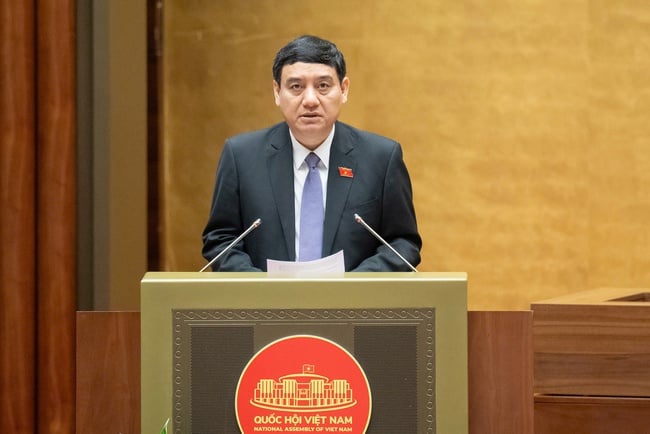
Chairman of the National Assembly's Committee on Culture and Social Affairs Nguyen Dac Vinh
According to the Committee for Culture and Society, the amendment of the Law on Education focuses on perfecting the national education system, enhancing the connection between general education and vocational training, and ensuring compliance with the National Qualifications Framework. The Committee agrees with the orientation of redesigning the position of "vocational secondary school", considering this level of education equivalent to high school but with a clear career orientation.
However, the review agency requested clarification of the legal basis, output standards, and assessment criteria to avoid overlap between the two types of training. Determining output standards is also the basis for smooth streaming and connection between levels, especially in the context of skilled labor becoming an urgent requirement of the economy.
Regarding the management of educational institutions, the Committee recommends studying and perfecting the legal framework for converting school types, especially in the context of the increasing number of private, international, and joint-education schools being established. It is necessary to specify the conditions, sanctions for handling violations, suspension or dissolution of educational institutions, and ensure the rights of learners and employees.
Regarding the team of teachers and support staff, the Committee emphasized the need to be consistent with the Law on Teachers and the Law on Civil Servants (amended). In addition, it is necessary to clearly identify support positions in schools (psychological counselors, school health workers, librarians, information technology workers, etc.) to serve as a basis for developing policies and regimes, contributing to reducing the workload for teachers and improving the effectiveness of comprehensive education.
Source: https://bvhttdl.gov.vn/thao-go-cac-vuong-mac-kho-khan-trong-dao-tao-cac-nganh-nghe-dac-thu-thuoc-linh-vuc-nghe-thuat-20251022192636391.htm



![[Photo] Award Ceremony of the Political Contest on Protecting the Party's Ideological Foundation](https://vphoto.vietnam.vn/thumb/1200x675/vietnam/resource/IMAGE/2025/10/22/1761151665557_giaia-jpg.webp)
![[Photo] Da Nang: Shock forces protect people's lives and property from natural disasters](https://vphoto.vietnam.vn/thumb/1200x675/vietnam/resource/IMAGE/2025/10/22/1761145662726_ndo_tr_z7144555003331-7912dd3d47479764c3df11043a705f22-3095-jpg.webp)
![[Photo] Prime Minister Pham Minh Chinh chairs meeting on nuclear power plant construction](https://vphoto.vietnam.vn/thumb/1200x675/vietnam/resource/IMAGE/2025/10/22/1761137852450_dsc-9299-jpg.webp)


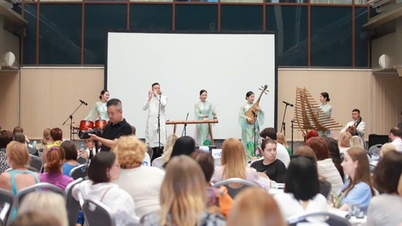
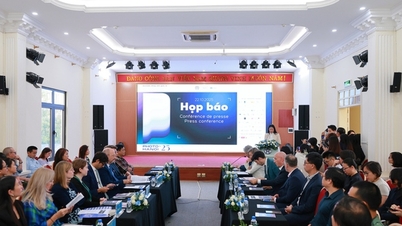

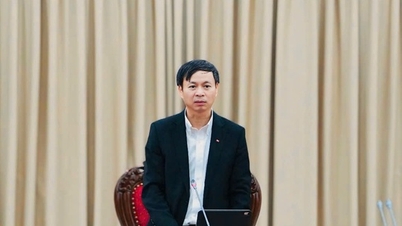

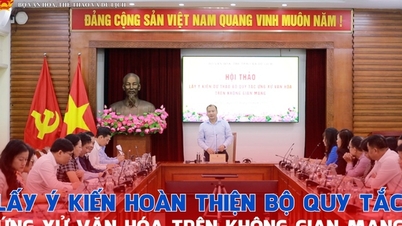
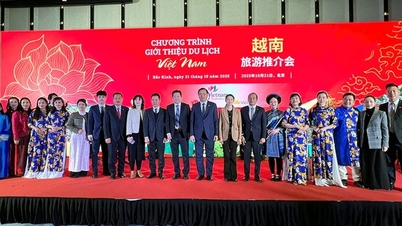




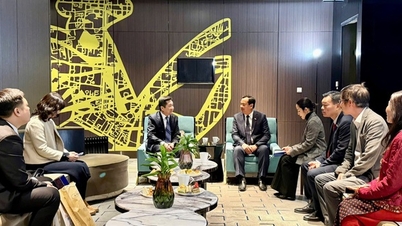
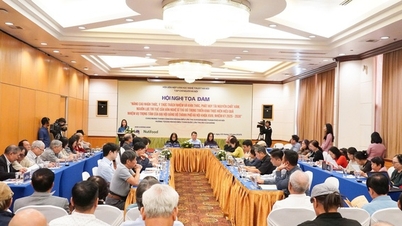
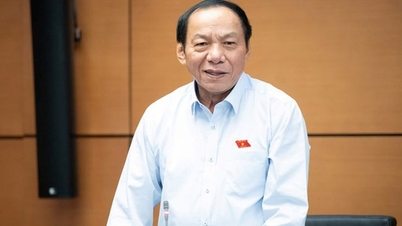
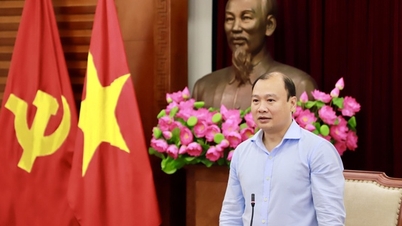
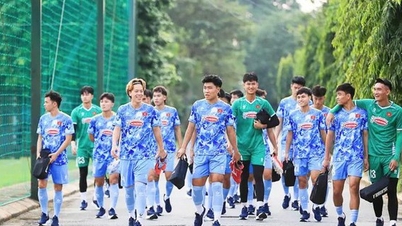
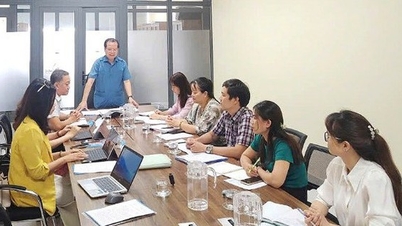








































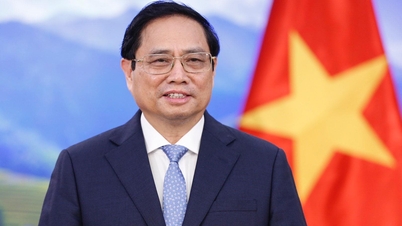

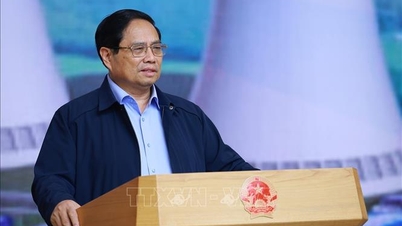




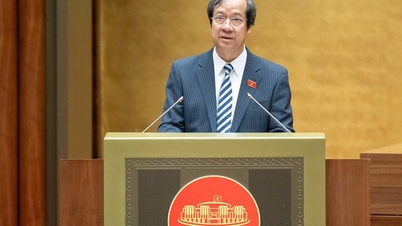


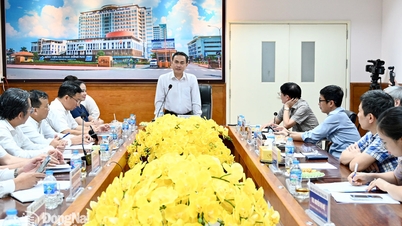




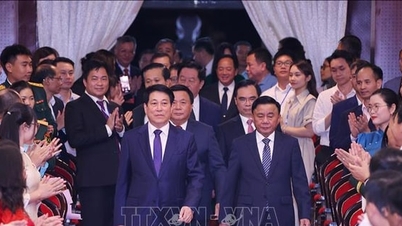

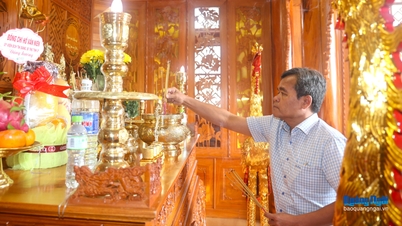














Comment (0)